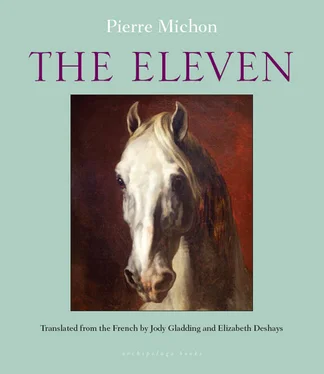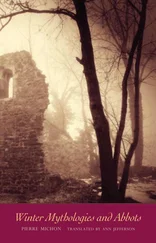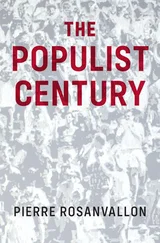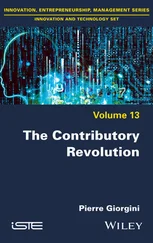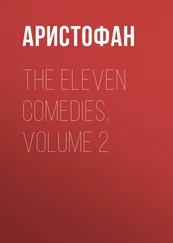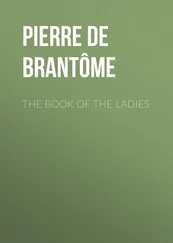He was over sixty when he quit, with his moneybags, and there under the French sky married a young girl of old nobility and small fortune, named Juliette. From their union was born Suzanne, in 1710, the mother of the painter — thus born of the dark, swarthy Limousin battalions, ill-formed, fallen from ladders, drowned in mud, dead drunk the day of the Lord slitting each other’s throats, but who from all that mud had, as if magically, made gold for a third party — and born as well of the great sovereign magician’s appetite, which, over those mud bodies, had built the great straight levees, the impeccable locks; born, Sir, as though from both the image of the calm sky over the calm waters of the canal, the single image of the single sky, and of the multiple bodies buried below and unappeased for Eternity, grimacing for Eternity, knives in their hands, patois insults on their lips, the day of the Lord; and born finally of a beautiful but dull, nervous girl of old provincial nobility who had no other destiny than to await, then to receive the pleasure and the seed of a lawless, faithless old man, or rather whose only faith and only law had been to place this seed with most intense pleasure in a blue-blooded white belly. He did not profit by it overmuch: he did not even have time to claim his wife’s name through marriage and be granted a title of nobility by Monsieur de Louvois at the Superintendency of the Rivers, because he died almost immediately. No matter: in the blue-blooded girl there had been irrevocable satisfaction, its exultant trace in the form of a baby daughter.
The child was beautiful as the day, as they said in those times, with alabaster skin, rosy cheeks, iris eyes, hair of gold, the lily and the roses — look at the texts of those eras, they all read that way. This girl, who might have stepped from the pages of Casanova or Sade, or from Bernardin or Jean-Jacques, grew up and was raised by the nervous girl who was a young, frightened widow; and the nervous girl who had no other child, no other horizon, no other object, who, despite the old man’s moneybags, was a poor woman with nothing in this world to call her own but a young daughter, the nervous widow raised her as you would imagine: she raised her as if she were truly alabaster, or porcelain rather, as if she were truly as fragile and transitory as roses; but also as if she were the queen of this world, as if her royalty were guaranteed by her caducity, like a princess; and the mother feared beyond measure that a princess, at the age when a bodice fills, must necessarily find a spindle on which to prick her finger and die. And of course, in the beautiful house of minor Combleux nobility, the château as it would now be called, but which at that time was undoubtedly a mediocre house of mediocre nobility behind stone steps and boxwood hedges, where a commoner had been accepted in marriage, the child was a well-behaved, nervous, dreamy princess; only when she ventured outside the château there were the dikes, the levees with their iron knots, all well cemented with Limousin cement, blood and mud, the magical work of the father.
I wonder, Sir, if it is really useful to tell you all this, these family histories and these noble ancestries, so prized by our era; if it is necessary to go back so far, to these pale existences that are only hearsay after all, hypothetical causes, when for two hundred years, before our eyes, we have had the indubitable existence of The Eleven , that definite block of existence, irrefutable, unchanging, the solid effect that does perfectly well without causes and that would do perfectly well, too, without my commentary. They are sirens, still singing in Combleux on that Loire shore in the flights of herons, as they sang in Venice and Würzburg, only more mezza voce, the role of the maestro no longer played by Tiepolo, with his spirits of the air, but by a savage old man with his battalions of Limousin Calibans. They call to us with all their might, mezza voce. They circle over the river, over the dredgers’ pulley, and we stay there, heads raised, listening to their circular song as if it were the inextricable story of the world itself that they were revealing to us. They beat the Loire sands, they tell stories as naturally as washerwomen beat their laundry, they trace signs in the air, let them drop to the water and relaunch them, and that great meaningful gesture they make suddenly with the flight of a gray heron skimming over the reeds, can you read it? These sirens prefer signs in the air to the tangible stretchers and tangible painted surface, four by three meters, called The Eleven . They want to prevent me from speaking of The Eleven , they turn my ear toward the din of their washing, the old clothes of two poor dead girls that they beat in the Loire like washerwomen beat their sheets. Ah Sir, you have to be clever to resist them. Because they tell stories, Sir, and so do we.
Suzanne’s bodice filled and the nervous little queen was almost as frightened by it as her mother; the two of them thought only of their fear, but to distract themselves they kept busy at other things, harmless pastimes women of that era were allowed, tapestry and poetry; and from what was said they hardly went out, despite their relative fortune, that is, the fortune of the faithless Huguenot, not that they were miserly or hoarders in any way, but they had no idea what to do with gold, having simply put it all into boats and vineyards at the death of the old man and left it to be managed, to sail, to flourish, having between them a whole other treasure, of generosity, of love that is shared and happy, but stifling as treasures always are, all their brilliance inviting loss. Because she was porcelain, Suzanne hardly went out, except with her mother on beautiful mornings along the levees, or in poor Orléans circles, a bit dull, a bit devout, a bit literary, with priests lacking panache and gentle provincial Anacreons, but also with merry girlfriends as they exist everywhere, their bursts of laughter truly conjuring the lilies and the roses, throughout the world, whenever there are two young girls together. Because I am sure that despite what I have said, the cramped life, dull circles, doddery priests with their wooden snuffboxes, her mother’s fear and her own fear born of her mother’s and conforming to it as twin to twin, as one growing breast conforms to the other, despite all that, I am sure that she was not in the least bored, that she was good and gay, good because gay, that she loved the small stone steps, the small fortune, the small full life, and the hope weighing heavy as a spring sky; because she was a queen: that is to say, someone who has known since birth an exclusive, unfaltering love, and when one has had that, anything can happen, sky and hope can collapse, one can get lost in a thousand forests, one’s heart can be ripped out and trampled a thousand times, but joy is always there, underneath, leaping up at the least cry, it remains there waiting, invincible, perhaps overshadowed sometimes, but alive, eternal, as they used to say when that word meant something. So there it is, what of the lily and the roses belonged to Bernardin de Saint-Pierre and Rousseau; as for the rest, what belonged to Sade, that is to say also a kind of hope and joy more distended than a sky, there was the shadow of the old man of whom the mother did not speak but whose indubitable force remained in the form of a navigable canal, the furrow of satisfied desire cut into the earth from Orléans to Montargis.
And so when she and her mother went arm in arm from Combleux to Orléans along the levee to attend some small literary salon, the young girl saw before her the emblem of that desire and its satisfaction, the canal with the whole sky reflected in it; and below, the invisible foundations, that is, two generations of Limousin laborers and masons who had had some kind of life before falling from ladders or getting stuck in the mud of the Loire, some kind of pleasure in the form of demijohns of bad wine and cutthroat knives, some kind of wife whom they saw for two months out of twelve each year in the Limousin, the two dark winter months, whose naked body under dark shapeless clothes they had never seen but only blindly, furtively bedded down, worked over and knocked up in the middle of the night in foul common rooms where the whole family slept, and from their exploits had derived some kind of children destined in turn to be Negro slaves ten months out of twelve (take note, Sir, all this at the time of gentle living, at the very moment when Tiepolo or someone else at the height of the scaffolding, at the height, too, of what used to be called Man, was painting the most beautiful and the lightest things that were ever painted — because one gets nothing for nothing and God is a dog). And it was not that Suzanne really thought about it, about what formed the foundation of her existence, through which she was somehow born; it was not that this arose distinctly in her mind, clearly and directly before her, as did her mother’s love, her growing breasts, or the anacreontic poetry appreciated at that time, which she was going to hear in Orléans. But it existed and she knew it as if from birth.
Читать дальше
